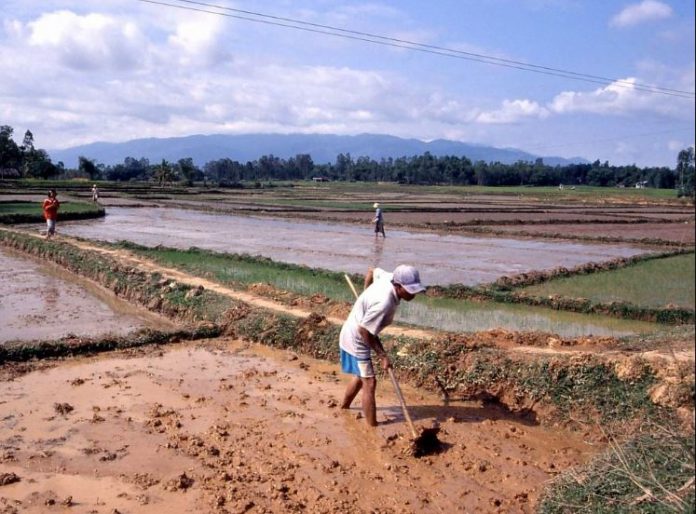One of the larger impacts of climate change is water availability. In the US, states in the West just agreed to a pact to reduce water taken from the Colorado River.This will potentially effect farming, the largest user of water in those states. In Spain, drought has reduced the output of olives and other produce. In Italy, rice farmers have been hit hard by similar dry conditions.
In the 1960s, a Jesuit priest named Henri de Laulanié de Sainte-Croix came up with a new way to grow rice in dry conditions. Pioneered in Madagascar, it’s called the System of Rice Intensification (SRI). According to the priest’s book Rice in Madagascar, SRI has four principles:
- Establishing plants early and quickly, to favor healthy and vigorous root and vegetative plant growth.
- Maintaining low plant density to allow optimal development of each individual plant and to minimize competitions between plants for nutrients, water and sunlight.
- Enriching soils with organic matter to improve nutrient and water holding capacity, increase microbial life in the soil, and to provide a good substrate for roots to grow and develop.
- Reducing and controlling the application of water, providing only as much water as necessary for optimal plant development and to favor aerobic soil conditions.
In Khanbu, in Nepal’s Udaypur district, SRI is being used by female farmers with the support of World Neighbors, a development organization based in Oklahoma City. Families using SRI have doubled output. The crop cycle decreased two weeks to 130 days, enabling families to bring their crops to market more quickly.
Crucially, families cut their water usage in half.
Farmers achieve all this without chemical fertilizers or pesticides—further cutting costs and increasing profits and incomes. In addition, eliminating nitrogen fertilizer shrinks the carbon footprint, as its production produces significant amounts of C02.
In Burkina Faso, farmers learn about SRI through farmer field schools established with assistance from World Neighbors. In these schools, farmers teach other farmers the SRI’s methodology, along with ways to produce and use organic fertilizer and pesticides.
As in Nepal, rice farmers in Burkina Faso obtain higher yields using far less water.









